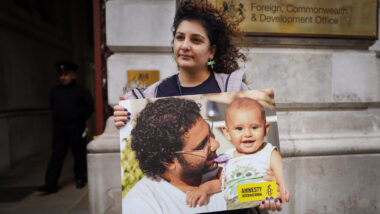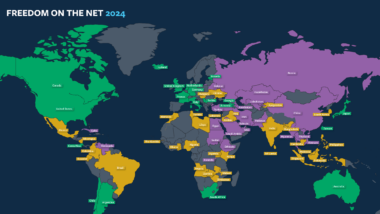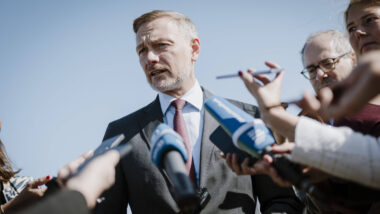Die Zeitschrift Foreign Policy hat ein Interview mit Lawrence Lessig zum WSIS geführt: Battling for Control of the Internet. Themen sind u.a. Internet Governance, Zensurtechnologien und die politische Regulation des Internets. Interessant ist ein Punkt, wo Lessig darauf verweist, dass ihm bei einer WSIS-Vorbereitungskonferenz untersagt wurde, über eine notwendige Balance im Urheberrecht zu sprechen. Das ist eigentlich bezeichnend für den ganzen WSIS-Prozess, entscheidende Fragen einer wachsenden Informationsgesellschaft wurden gerne von den Diplomaten ausgeblendet.
LL: I question whether the [summit] is considering all the issues it needs to be. I was a speaker at one of the preparatory committees and, before my speech, I was asked about what I was going to talk about. I said I was going to talk about the need for balanced intellectual property rules in order to produce the best information society [possible]. The chairman of my session said I was not allowed to talk about intellectual property. She said that’s a problem for the World Intellectual Property Organization. It was ridiculous. It revealed a way in which the deal was struck to establish the World Summit on the Information Society, which was as long as you don’t touch intellectual property you can talk about whatever you want. The insane thing about that position is that there’s no way to strike the right balance unless you consider intellectual property. [For example,] database rights are going to fundamentally affect the future of the information society. The question remains whether the [summit] will be allowed to develop any coherent policy position about the proper balance for intellectual property. My skepticism suggests that they won’t. This issue will be negotiated off the table by those who want to keep control over that policy.
Bei intern.de gibt es eine deutschsprachige Zusammenfassung des Interviews: Kontrollansprüche der EU – eine Folge der US-Außenpolitik.




0 Ergänzungen
Dieser Artikel ist älter als ein Jahr, daher sind die Ergänzungen geschlossen.